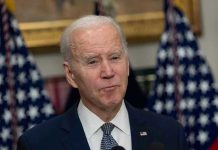
President Trump’s promise of $10,000 bonuses for air traffic controllers who worked during the shutdown has sparked a fierce clash, exposing deep divisions over respect for American workers, government accountability, and the integrity of federal crisis management.
Story Snapshot
- Trump’s statement rewards “patriotic” air traffic controllers and threatens repercussions for those who missed work during the shutdown.
- Current Transportation Secretary Sean Duffy supports Trump, pledging to reward committed controllers and urging discipline in the workforce.
- Former Secretary Pete Buttigieg accuses Trump of spreading misinformation to distract from healthcare failures.
- The dispute highlights fundamental differences over labor policy, public safety, and the proper role of government in crisis.
Trump’s Message: Praise, Bonuses, and a Stand for Accountability
On November 10, 2025, President Trump issued a statement on Truth Social, sharply criticizing air traffic controllers who called in sick during the government shutdown and promising $10,000 bonuses for those who “stood their post.” Trump’s message resonated with many Americans frustrated by years of unchecked government spending, bureaucratic inefficiency, and what they perceive as a lack of accountability for federal workers. By vowing to reward those who honored their duty—instead of rewarding absenteeism—Trump positioned himself as a champion for hard-working Americans, drawing a clear line between personal responsibility and political gamesmanship.
Trump’s approach also marked a major departure from the previous administration’s handling of shutdowns, which often left essential workers unpaid but failed to offer concrete rewards or consequences. The promise of a $10,000 bonus is unprecedented and signals a new era of direct executive intervention in labor disputes affecting critical infrastructure. For Trump’s supporters, this move not only upholds traditional values of hard work and patriotism but also serves as a rebuke to the culture of entitlement and lack of discipline they associate with past “woke” policies and government overreach.
Secretary Duffy and Buttigieg: A Clash of Visions
Transportation Secretary Sean Duffy quickly echoed Trump’s message, publicly thanking controllers who continued working and pledging to work with Congress to secure the promised bonuses. Duffy’s stance reinforced the administration’s commitment to rewarding loyalty and upholding order in a sector vital to national safety. His call for air traffic controllers to “show up for work” underscored the conservative principle that public service demands sacrifice and dedication, especially during times of crisis. In sharp contrast, former Secretary Pete Buttigieg dismissed Trump’s statements as fabrications, accusing him of using the controversy as a smokescreen for failures in healthcare policy and system modernization. Buttigieg argued that the air traffic control system had made significant technological advances, and he pointed to independent audits disputing claims of widespread absenteeism. This clash highlighted the ongoing battle between reform-minded conservatives seeking accountability and those defending the status quo under the guise of modernization.
The dispute between Duffy and Buttigieg is more than a personal rivalry—it illustrates the broader ideological divide over how to manage essential federal workforces. For conservatives, Duffy’s support for Trump’s hardline approach represents a long-overdue correction of leftist policies that, in their view, have undermined discipline, allowed union interests to override common sense, and put public safety at risk.
Labor Relations and Constitutional Principles
The air traffic control controversy revives memories of the 1981 PATCO strike, when President Reagan fired controllers who walked off the job—an act heralded by conservatives as a defense of the public interest and executive authority. Today, the stakes are similar: with a national shortage of controllers and ongoing disputes over pay and conditions, the question is whether government employees can leverage their critical roles for political gain without consequences. Trump and Duffy’s position aligns with constitutional principles of limited government and the rule of law, insisting that essential workers cannot hold the nation hostage for personal or political reasons.
Critics, including Buttigieg and some labor advocates, argue that punitive measures and public shaming risk undermining morale and long-term workforce stability. However, many conservatives view such concerns as misplaced, especially after years of government policies that, in their eyes, prioritized special interests over the needs and security of ordinary Americans. The administration’s willingness to reward merit and discipline, rather than blanket leniency, reflects a broader commitment to restoring respect for the rule of law and the dignity of honest work.
Political and Economic Implications for the Nation
As Congress debates the feasibility of Trump’s bonus proposal, the outcome will set a precedent for how future crises are managed and how public servants are expected to balance personal hardship with duty. Supporters argue that rewarding those who kept the skies safe during a shutdown not only strengthens national security but also sends a clear message that commitment to country will be recognized—not undermined by political maneuvering or union pressure. With air traffic control shortages and public trust on the line, the administration’s stance could reshape federal labor policy for years to come. The real question remains: will America return to a culture that values hard work, discipline, and constitutional principles, or will it slide further into bureaucratic chaos and leftist appeasement?
Sources:
Trump wants $10K bonus for air traffic controllers who worked during shutdown

















